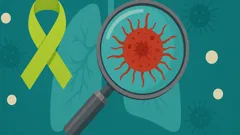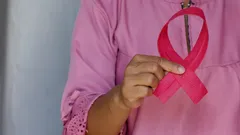
Are you curious why some people develop cancer even if they exercise, eat healthy, and avoid bad habits? This question confuses many of us, especially here in the Philippines where family health holds great value. It feels both awe-inspiring and, at the same time, emotionally draining and humbling to know that you've done everything right, but still face something unexpected. Understanding the real reasons behind this can help Filipinas recognize the risks of cancer and remain hopeful. You might pick up important info here that could be the difference for you or your loved ones whom you care about.
Is a Healthy Lifestyle Always Enough?
Living a healthy lifestyle—like eating vegetables and fruits, exercising often, and avoiding smoking—greatly lowers your chances of developing cancer. Studies say up to 30 percent of cancer cases worldwide are due to risk factors that can be changed, such as exercise and diet. Still, these studies only touch the surface of the issue. Here in the Philippines, even as more women become health-conscious, some are still diagnosed with cancer. This shows that although living healthy is beneficial, it’s not 100% sure to keep you safe.
Genetics: The Family Factor Filipinas Can't Ignore
Another reason healthy people still develop cancer is their genetics. If your family has a history of a particular cancer, your risk may be higher. For example, about 5–10 percent of breast cancers are hereditary, meaning genes passed down from your parents can make you more at risk. This is why doctors in Manila often tell women to ask about their family’s medical history—it’s important to catch and prevent cancer early.
Environment and Invisible Risks
Sometimes, environmental influences—factors you don’t always see or recognize—are major contributors. In busy cities like Quezon City or Makati, things like air pollution, exposure to chemicals at work, or even certain viruses can increase your cancer risk. The World Health Organization says environmental factors cause 19 percent of cancer cases globally. In the Philippines, secondhand smoke or industrial pollutants can make even non-smokers more vulnerable.
"As physicians, we see patients who did everything right, but still get cancer. It’s a reminder that some risks are simply beyond our control—like genetic changes that happen as cells divide."
Age, Hormones, and Random Events
Age is a crucial part, too. As we get older, an accidental mistake when cells replace themselves can result in cancer. The Philippine Cancer Society notes 60 percent of cancer cases in women are spotted after age 50. Hormonal changes, especially for women going through menopause, can affect cancer risk—even if you live healthy. Sometimes, cancer just happens by chance, with no direct genetic or outside factor.
Staying Proactive: What Filipinas Can Do
You can’t control every factor, but you can lower your risk. Regular check-ups are vital, especially for breast and cervical cancer. Talk to your doctor about the importance of screening tests when you’re in your 30s. Keep practicing health and beauty habits to boost your immune system—like eating antioxidant-rich dishes and managing stress. Always keep learning about new research and talk to your family about cancer risks so everyone stays informed.
In the end, even the healthiest women in the Philippines may still get cancer, but understanding the true cancer risks can help you take better care of yourself. Keep fighting, share your story with others, and remember that understanding cancer’s causes can be life-changing. If you’re wondering, " What are the leading causes of cancer among healthy Filipinos?"—it’s genetics, environment, age, and sometimes simple chance. Discuss these topics with trusted women in your community and make health a top priority every day.
 Meg Magazine
Meg Magazine



Comments